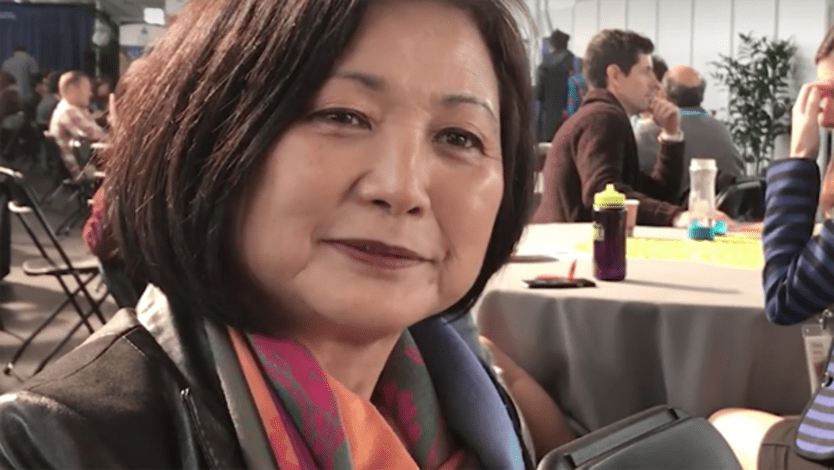
SAN FRANCISCO — PathVis, a smartphone-based detection platform, describes itself as the power of the lab in the palm of your hand. It can measure the level of disease pathogens and provide results in 30 minutes rather than three days so that medical workers and aid organizations have real-time insights on potential outbreaks. In June, the team at Purdue University was awarded $300,000 as the first place winner of an annual competition. The group says it has allowed them to accelerate the development of PathVis and launch official field-testing in Haiti.
Last Tuesday, the Vodafone Americas Foundation announced the opening of its 10th annual Wireless Innovation Project. The competition identifies and funds wireless technologies addressing critical social issues in the fields of education, health, the environment, economic development, disaster relief, and access to communication; it also shares a birthday with the Social Capital Markets conference, which gathered entrepreneurs in San Francisco last week. There, June Sugiyama, director of the Vodafone Americas Foundation, took the chance to raise awareness of the call for entries.
“We’re looking forward to welcoming the latest technologies with potential to drive true social impact,” she said in a press release sent to Devex ahead of the official launch. “The Wireless Innovation Project has helped propel many early stage ideas into real-world, life-changing innovations … and this year we expect to see more impressive connected solutions and wireless technologies.”
For 10 years, the Vodafone Americas Foundation — one of 27 foundations connected with one of the largest telecommunications operators in the world — has awarded $5.5 million to winners through the competition. This year, it will award $600,000 in prize money. The foundation welcomes applications from nonprofit organizations, universities, nongovernmental organizations, and social entrepreneurs with a nonprofit partner.
Devex sat down with Sugiyama to discuss what she has learned from running the competition in the past, and her hopes for this year as the Silicon Valley-based foundation reviews applications through March 2018.
“Competitions like ours have been really helpful for our sector to seek the best and the latest technologies,” Sugiyama told Devex.
Even though there are only three winners — with second place receiving $200,000, and third place receiving $100,000 — there are benefits for the funders who put on these competitions, as well as the applicants who make it past the first round. Last month, for example, ENventure, which finances and trains organizations to launch rural clean energy enterprises in Uganda, emailed supporters with this video about its open-source productivity app, allowing merchants to capture inventory, input sales, and forecast orders. Finalists were invited to present in the final round of the Wireless Innovation Project, before a panel of expert judges from fields including wireless engineering, international development, and social entrepreneurship.
“A lot of our winners have certain common qualities,” Sugiyama said, explaining that one of them is that they don’t become complacent. “They’re not satisfied with the first app they created and even though they have umpteen million users, they want to not necessarily get more users but provide sophisticated and incredible apps or further the application to fulfill the needs even more,” she said.
She mentioned a 2014 Wireless Innovation Project winner, SOKO, as an example of what she means when she talks about innovation. One of a range of organizations bringing technology to ethical fashion and conscious consumerism, the company is using mobile phones to provide independent artisan entrepreneurs with ways of selling to international fashion consumers. While a lot of people are working to bring artisans online, SOKO goes beyond that, creating a backend that allows for the exchange of money, whether that is for payment or insurance. “So they're really thinking ahead and out of the box and that’s what we mean by innovation,” Sugiyama said.
When Devex asked what message Sugiyama has for entrepreneurs, she talked about the problem with the duplication of efforts across the mobile innovation space and said more entrepreneurs need to research what solutions already exist before they try and propose a solution of their own. She also emphasized the need to design for “dumb” phones, or feature phones, as well as smartphones because, for now, the world still needs solutions for those who can do little more on their phones than call or text. When it comes to her message for investors, Sugiyama narrowed in on the need for more risk capital in wireless innovation. While winning innovations from the Wireless Innovation Project have directly impacted 40 million people in 40 countries, she said, the funding is by no means at the scale of the problem and opportunity.
“I think the type of funding you need is something that’s quite flexible,” she said. “A lot of our funds are something that people deem high risk. And not many of the funds, especially venture capital, are willing to take the risk. That said, the funny thing is it’s been stated that VCs expect only 25 percent of their portfolio to be successful and reach the market. Ours is 62 percent.”
Sugiyama spoke about the problem of “pilotitis” — the inability to break out of the pilot stage — in the mobile innovation space, and the value of a network of innovators who can learn from each other as well as from their funders who see a new pipeline of projects every year.
The Vodafone Americas Foundation is looking for projects that are in a late stage of research, or an advanced prototype that has gone through a field market test, which can take place during the award period.
Read more international development news online, and subscribe to The Development Newswire to receive the latest from the world’s leading donors and decision-makers — emailed to you free every business day.




